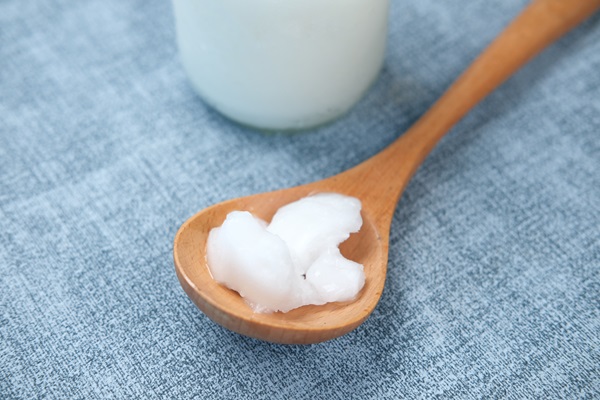The Truth Behind Oil Pulling

Recently, one dental remedy has been gaining popularity because of how it is believed to have multiple dental benefits–including teeth whitening and the removal of bacteria. This remedy is called oil pulling and is rooted in ancient Ayurvedic practices.
But how effective is this practice, and does it live up to its claims? Let’s explore oil pulling in this blog, including its purported dental benefits and whether it’s worth incorporating into your oral hygiene routine.
What is Oil Pulling?
When you go online, you may have already passed by a topic about oil pulling but you’re not quite sure about what it is. Oil pulling is an ancient Ayurvedic practice that involves swishing oil—typically coconut oil—around the mouth for about 20 minutes. The concept behind dental oil pulling is that the oil “pulls” toxins and bacteria from the teeth and gums, promoting a cleaner and healthier mouth.
Advocates of oil pulling claim that it can:
- Whiten teeth
- Remove bacteria
- Prevent cavities
- Improve gum health
While people may have testified that this trendy practice worked for their own oral health, it’s still important to know the truth behind these claims — to see the fact behind the opinion. The practice itself still lacks scientific proof that oil pulling can offer the benefits it has presented.
How Does Oil Pulling Work?
To perform oil pulling, a tablespoon of coconut oil is placed in the mouth and swished around for 20 minutes. The theory is that the oil traps toxins, bacteria, and other debris, which are then expelled when the oil is spat out. Coconut oil is often favoured because of its antibacterial properties and because it contains lauric acid, which is known to have mild antimicrobial effects.
But does this practice live up to the claims made about it? Let’s take a closer look at it.
The Reality: Does Oil Pulling Really Work?
Does Oil Pulling Remove Bacteria?
One of the primary claims of dental oil pulling is that it can remove harmful bacteria from the mouth, reducing plaque and preventing tooth decay. While netizens have been saying that they saw a change in their teeth, the scientific evidence supporting this claim is limited. Coconut oil does contain some antimicrobial properties, but no study has proved that it can be a great substitute for brushing and flossing.
Remember, your teeth can easily build up plaque if you do not have a good oral health routine. Plaque is a sticky layer of bacteria that forms on your teeth, and if water cannot remove it, then simply swishing oil won’t do the trick either. Plaque sticks to your teeth, and like grime, it needs to be scrubbed away with brushing and flossing.
Can Oil Pulling Whiten Teeth?
Another common claim about oil pulling teeth is that it can help whiten your smile. Some people might stand by the claim, but there’s no solid proof of that. Coconut oil might make your teeth look shiny, but it doesn’t have a real whitening effect.
If you want whiter teeth, using over-the-counter teeth whitening products can help. But the better solution is visiting your dentist for a consultation about their professional whitening services. It’s best to stick to proven methods for whitening instead of relying on oil pulling.
Can It Improve Gum Health?
While oil pulling may provide some benefit by lubricating the gums and mouth, it is not a replacement for proper oral hygiene practices. There’s no solid evidence that oil pulling significantly improves gum health or can treat issues like gingivitis. Brushing, flossing, and regular dental cleanings remain the most effective ways to maintain healthy gums.
The Limitations of Oil Pulling
While many would argue that oil pulling does have dental benefits and is unlikely to cause harm when done occasionally, there are several limitations to be aware of:
1. Not All Mouthwashes Remove Bacteria
Because coconut oil is used in oil pulling like it’s a mouthwash, one common misconception of people is that all mouthwashes can remove bacteria. Unfortunately, this is not true for oil pulling, and even some over-the-counter mouthwashes are less effective at bacterial removal than others.
Certain mouthwashes contain antibacterial agents like chlorhexidine, which are proven to kill bacteria, while coconut oil does not have these properties.
2. Coconut Oil Cannot Remove Bacteria
Swishing oil in your mouth, especially for 20 minutes, can actually be diluted by saliva, which reduces its effectiveness. Unlike professional dental products designed to kill bacteria, coconut oil lacks any strong antibacterial properties that could make a significant difference in oral hygiene.
3. Swishing for 20 Minutes is Difficult
Let’s be honest—swishing oil around your mouth for 20 minutes is not only uncomfortable but also difficult for most people to commit to. Many people give up on this because of how time-consuming it is to swish something in their mouths for an extended period of time.
Does Oil Pulling Replace Regular Oral Hygiene?
Now, one of the biggest questions would be, “Does oil pulling replace regular oral hygiene?”
The simple answer? No.
It’s important to understand that oil pulling should not replace any of your regular oral hygiene routine. Brushing twice a day with fluoride toothpaste, flossing, and visiting your dentist for regular cleanings are still the most effective ways to prevent cavities, gum disease, and other oral health issues. While it can be something you’d like to incorporate into your routine, it is not a substitute for proven dental care methods.
Your Oral Health is Our Top Priority
Despite the trend and how many people have sworn that oil pulling works, the reality is that it does not live up to the claims that it can whiten teeth or remove bacteria. More studies are still needed to provide hard proof that dental oil pulling is indeed a great alternative solution over traditional oral hygiene methods.
But since there is still no hard evidence about it, brushing, flossing, and visiting the dentist twice a year is still the best routine you can give to your teeth.
Our dentists at Whitehorse Dental recommend focusing on proven methods for maintaining oral health. If you’re interested in exploring alternative oral care methods or have any questions about your oral health, we’re here to help.
Schedule a consultation with us today, or call us at (03) 8838 8820 to discuss the best practices for maintaining healthy teeth and gums with one of our dental professionals.



